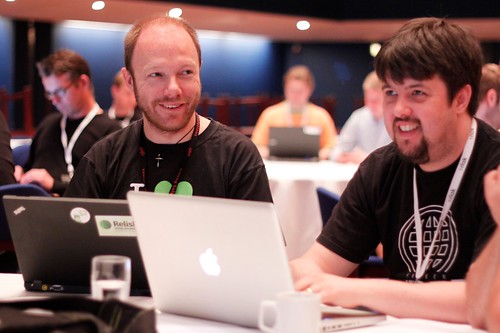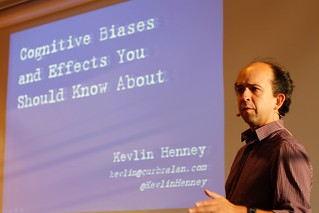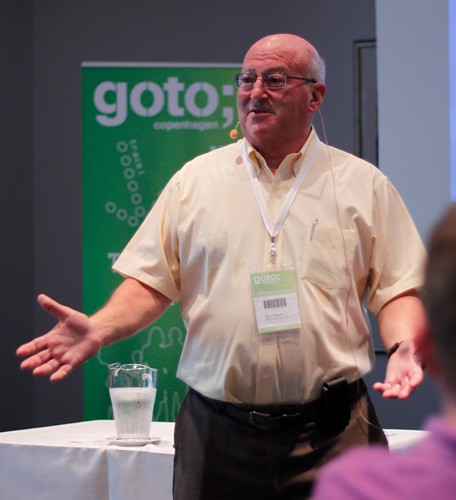This post is actually not inspired by this years GOTO Conference, but the one 2 years ago in Copenhagen. I can’t remember if it was in a talk or it was during my discussing with Dave Thomas in one of the breaks, that he started talking about “Legacy systems”. I was kind of star struck, so I didn’t question anything he said – well, not until I got home anyway. When I was looking through my old posts, I found this entry, where I asked how others would define the term “Legacy System”. Nobody really coined it and I’ve been meaning to follow up on this post for 2 years now, but never got around to it before now, so here goes. This is my definition.
Technology needs to be dead or dying
If the system is build on a brand new techology, it is hard to argue that is has any kind of legacy to it. It has to be something that has been, something that was state of the art, but not any longer. The technology was either adequate or simply the best available at the time the system was build, but the world/company moved on and the chosen techology had a hard time keeping up with new demands.
Systems has to have substantual/significant value to the company
If the systems does not have any value to the company, it can be turned off. The revenue stays the same and nobody will miss it, therefor the cost of having it running needs to be less than the loss of shutting it down.
The rate of new features added is going towards zero
If features are still add to the system at a high rate, I would argue that it is a system still under development. This to me indicates, that its technology can keep up with demands, thus it is not dying. The system needs to be in a state where it either sufficiently solves the business needs or the pain and cost of adding extra features are higher than the revenue from adding them.
The time spent on new features is less than time spent on bugfixing and maintenance
Though the rate of adding new features is going towards zero, I will still argue, that if more time is spent adding features that maintaining the system, it is still under development. Every time a feature is added, the value of the system increases and if it increases more than the cost of running it, the company is investing thus the system is still under development, therefor it is not a legacy system. It has to be in a state where the company invests less in adding new features than the cost of running the system.
* * *
So this basically sums up to be an old system that have a substantual/significant value to the company, a system that does not grow in value but needs to be maintained, so it does not devaluate.

 I have heard him speak on other occasions and I really enjoy listening to his talks. I find them inspirering and I always take something new home with me. Last time it was a Rubriks Cube and a ball pen – you know what I mean.
I have heard him speak on other occasions and I really enjoy listening to his talks. I find them inspirering and I always take something new home with me. Last time it was a Rubriks Cube and a ball pen – you know what I mean.
